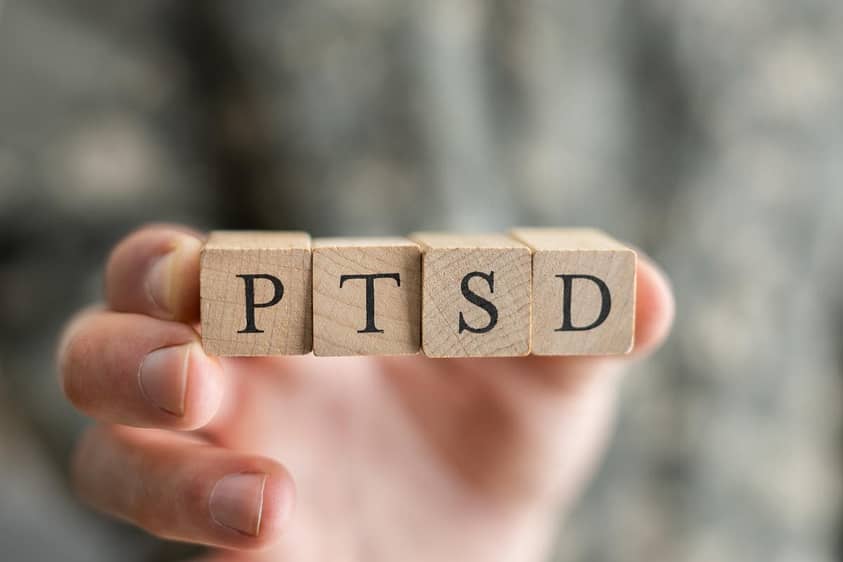Most people are aware of the unnecessary hardships associated with untreated trauma. One unfortunate consequence of untreated trauma is the development of post-traumatic stress disorder (PTSD). PTSD increases rates of addiction, incarceration, poverty, and unemployment. Undiagnosed PTSD dramatically diminishes the chance for addiction treatment to be successful. For this reason, professionals must test people experiencing any PTSD symptoms upon entering drug treatment. Suppose you’re experiencing any symptoms. If you or a loved one is experiencing any symptoms of untreated PTSD and struggling with addiction, please get in touch with Red Oak Recovery® Center today at 866.457.7590.
What Triggers PTSD?
The brain is rarely able to deal with the effects of trauma without outside intervention. The best way to ensure healing is early intervention and consistent behavioral therapy. Unfortunately, this isn’t always the case. Drug rehab is often the best opportunity a person has to get diagnosed and begin the healing journey. A dual diagnosis treatment for co-occurring disorders can give patients the tools they need to start rebuilding their lives.
A traumatic experience must be processed and integrated promptly into the psyche in a meaningful way. If it’s not, the brain only integrates the terror experienced during the trauma. This lack of context causes the brain to undergo extraordinary changes as it adapts itself in preparation for the next painful event. In these cases, disorders like PTSD develop, and with the added dimension of drug abuse, the worst symptoms often flourish. Some examples of experiences that can contribute to PTSD development are:
- Military combat
- Rape or molestation
- Accidents
- Violence
- Terrorist attacks
- Natural disasters
- Witnessing or experiencing an assault
- Child abuse
- Domestic abuse
- Severe bullying
There is a long list of negative consequences for people living with PTSD. Rage episodes, insomnia, nightmares and flashbacks, disordered thinking, memory issues, emotional instability, and a heightened sense of fear are all hallmarks of a person’s life with PTSD. Untreated, these symptoms can take the driver’s seat, controlling every aspect of life. The past haunts people diagnosed with PTSD. Unfortunately, without treatment, they can feel destined to relive painful events repeatedly. By existing in past trauma, they have no opportunity to experience the life in front of them.
The Relationship Between PTSD and Addiction
There is an incredibly high rate of comorbidity seen with PTSD and addiction. Numerous studies show the interrelation between addiction development and PTSD. Studies on the origins of PTSD mostly center on brain activity connected to memory, learning, and fear. Evidence shows that stress responses and memory formation are complex in their effect on each stage of chronic addiction.
Drug addiction has been described as a disease of “learning and memory.” However, many refer to PTSD as a disease of “stress and memory.” Drug addiction pathways hijack the natural learning process. Drugs’ effects on memory, fear response, and stress are complex because drug use and drug withdrawal can inhibit new memories from being formed and alter the memories we already have.
Additionally, as individuals engage with a substance more and more, over time, the intoxication itself can become integrated into these painful recollections. Studies show that the brains of people with PTSD have undergone remarkable changes in their structure. Observations include lowered volumes in the amygdala and hippocampus and rewiring in the prefrontal cortex. When taken together, these changes cause the inability to extinguish fear and heightened stress response. This constant state of heightened arousal often drives people to use drugs for relief.
How Can Drug Use Worsen PTSD?
While society generally perceives drug use as a maladaptive coping mechanism, with PTSD, the implications are more complicated. Drugs inhibit the ability of the brain to process information and retrieve memories, which are both necessary to get past the trauma and reconcile past events. Avoidance is a significant characteristic of PTSD; drug use intensifies the avoidance, preventing people with PTSD from working through their issues.
Drug use also significantly worsens PTSD symptoms. This increased presentation of symptoms can make dual diagnosis a practical approach to patient treatment. The symptoms of PTSD that warrant a diagnosis:
- Experiencing a traumatic event
- Reliving a traumatic event through nightmares, flashbacks, or intrusive thoughts
- Going out of your way to avoid anything that reminds you of your trauma
- Changes in arousal state, like hypervigilance or sudden, intense episodes of rage
- Emptiness and an inability to experience joy
- Memory deficits and distortion
- Loss of executive functioning in the brain.which inhibits decision making, planning, and concentration
Many people with PTSD can’t distinguish what’s happening now from what’s happened in the past. In some ways, they are constantly responding to a past event. Drug use and the pain of the addiction cycle only serve to complicate PTSD, and in some cases, might even trigger the development of it.
Get Dual Diagnosis Treatment at Red Oak Recovery® Center
The lived human experience is unpredictable and, at times, very unfair. Often, painful experiences are an unavoidable consequence of existence. Despite the inevitability of trauma, there is much we can do to better the lives of those suffering from it. PTSD is a painful reality of living with untreated trauma. Very often, PTSD presents with addiction issues. Drug and alcohol use may appear to ease your pain in the short term, but using them is hurting you in the long run by taking away your opportunity to heal. Please call Red Oak Recovery® Center today at 866.457.7590 for options on addiction treatment programs to heal you: mind, body, and soul.








